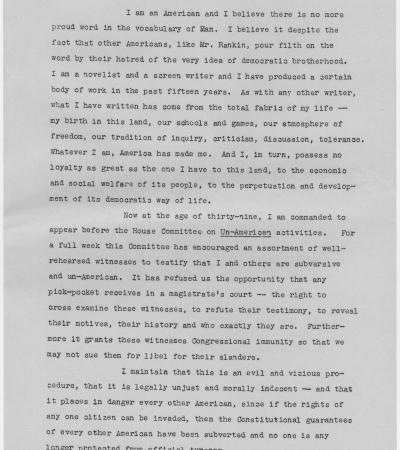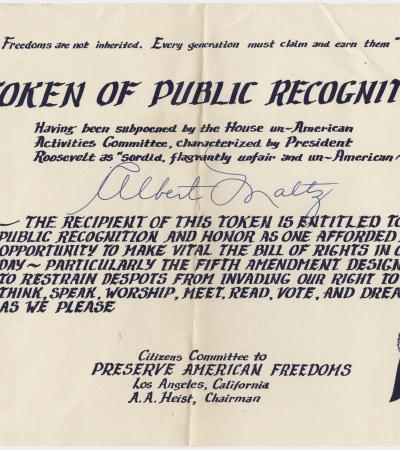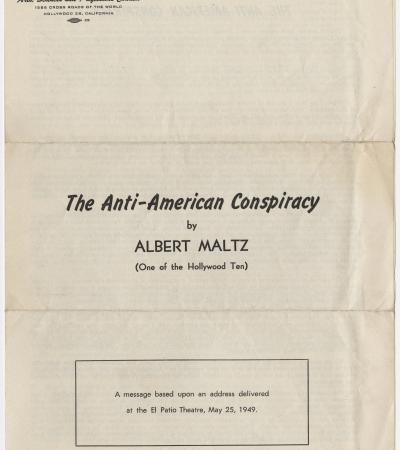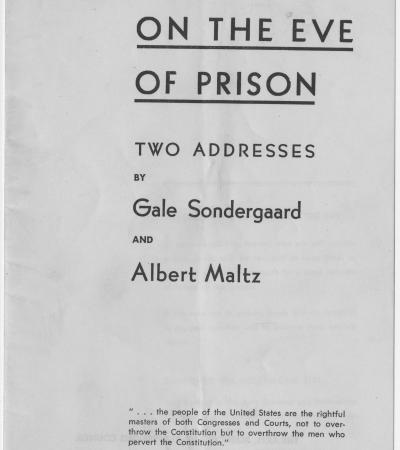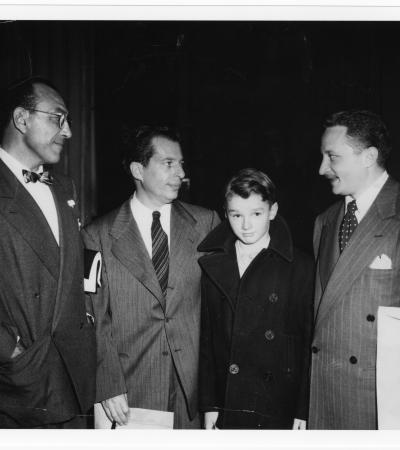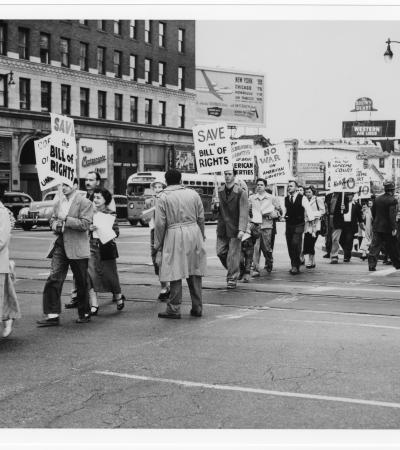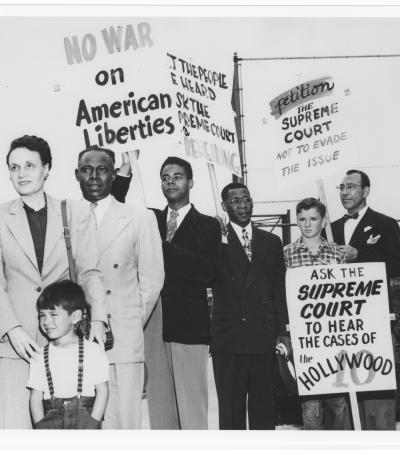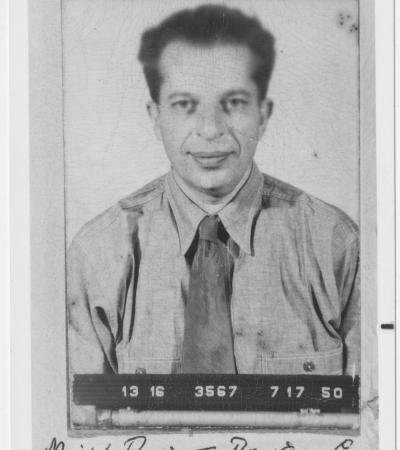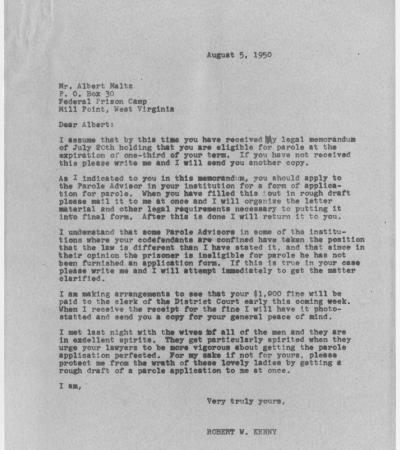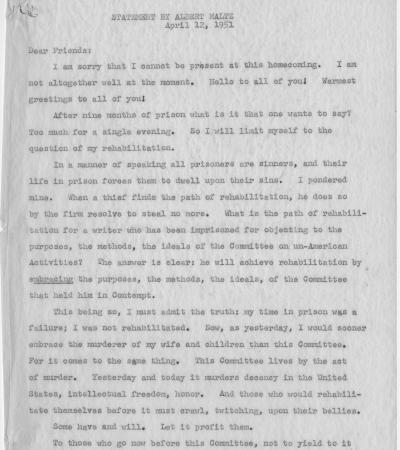Screenwriter Albert Maltz was born in 1908 to an affluent Jewish family in Brooklyn, New York. After earning a master’s degree in playwriting from the Yale School of Drama, he began writing sociopolitical plays that were produced by New York-based progressive theatrical companies such as the Group Theater. He also wrote novels and short stories. Influenced by the works of political philosopher Karl Marx, he joined the American Community Party at the height of the Great Depression in 1935. In 1941, Maltz became a screenwriter for Warner Bros., which was known for its socially aware dramas. His work included the Oscar-winning documentary The House I Live In (1945), a plea for racial tolerance. In 1947, Maltz was called before the House Un-American Activities Committee (HUAC). His uncooperative behavior, which included not "naming names," made him a member of the Hollywood Ten. Like the others, he was fined and jailed by HUAC and blacklisted by the American film industry. Despite this, Maltz continued to write using "fronts" who sold his screenplays and received any writing credit designated by the studios and Screen Writers Guild. He did not receive credit under his own name until he was openly recognized as screenwriter for the 1970 film Two Mules for Sister Sara.
Additional content for this collection can be found in the "Inventory for collection.”
Albert Maltz's statement to the House Committee on Un-American Activities, October 28, 1947
Maltz's statement to HUAC in which he states, in part, that the charge against him and others like him is an "evil and vicious procedure, that is legally unjust and morally indecent - and that it places in danger every other American…"
"A Token of Public Recognition" issued to Albert Maltz by the Citizens Committee to Preserve American Freedoms, 1947
"A Token of Public Recognition" issued to Albert Maltz by the Citizens Committee to Preserve American Freedoms for having been subpoened by the House on Un-American Activities Committee.
"The Anti-American Conspiracy" by Albert Maltz, May 25, 1949
A socialist organization called The Arts, Sciences and Professions Council published a transcript of a talk by Maltz titled "The Anti-American Conspiracy," which he delivered at the El Patio Theatre in Hollywood, California, on May 25, 1949.
"On the Eve of prison: Two Addresses by Gale Sondergaard and Albert Maltz," 1950
The Arts, Sciences and Professions Council published text of talks by actress Gale Sondergaard and by Maltz given in 1950 at venues in Hollywood and Los Angeles. Sondergaard's career suffered irreparable damage when her husband Herbert Biberman was accused of being a communist and named as one of the Hollywood Ten.
Herbert Biberman, Albert Maltz, Maltz's son, and unindentified man, ca. 1950
Herbert Biberman was one of the Hollywood Ten along with Albert Maltz.
Protesters in support of the Hollywood Ten, 1950
Protesters were demanding that the U.S. Supreme Court hear cases involving the Hollywood Ten; however, the court upheld HUAC's contempt charges against the Ten.
Protesters in support of the Hollywood Ten, 1950
Hollywood Ten member Herbert Biberman (left, rear) with protestors in support of the Ten.
Mug shot of Albert Maltz, Mill Point Federal Prison, July 17, 1950
Mug shot of Albert Maltz taken when he entered Mill Point Federal Prison in West Virginia on July 17, 1950, for refusing to cooperate with HUAC.
Letter from Robert W. Kenny to Albert Maltz, August 5, 1950
Robert Kenny was one of the chief defense lawyers for the Hollywood Ten. In this letter he informs Maltz that he is eligible for parole.
Statement by Albert Maltz upon his release from prison, April 12, 1951
Maltz makes a public statement denouncing HUAC after his release from prison in 1951. Maltz moved to Mexico and remained there until 1962.
